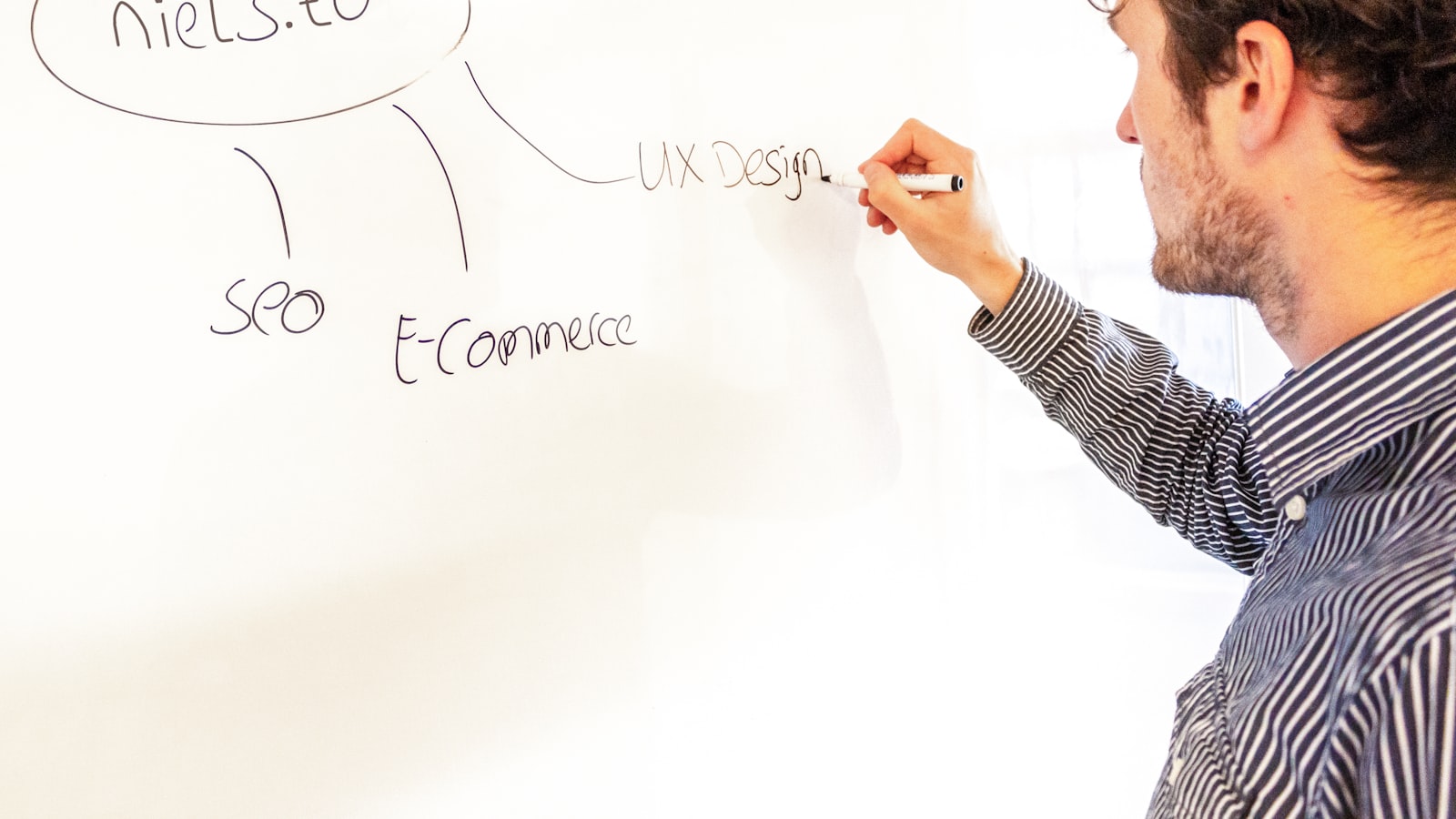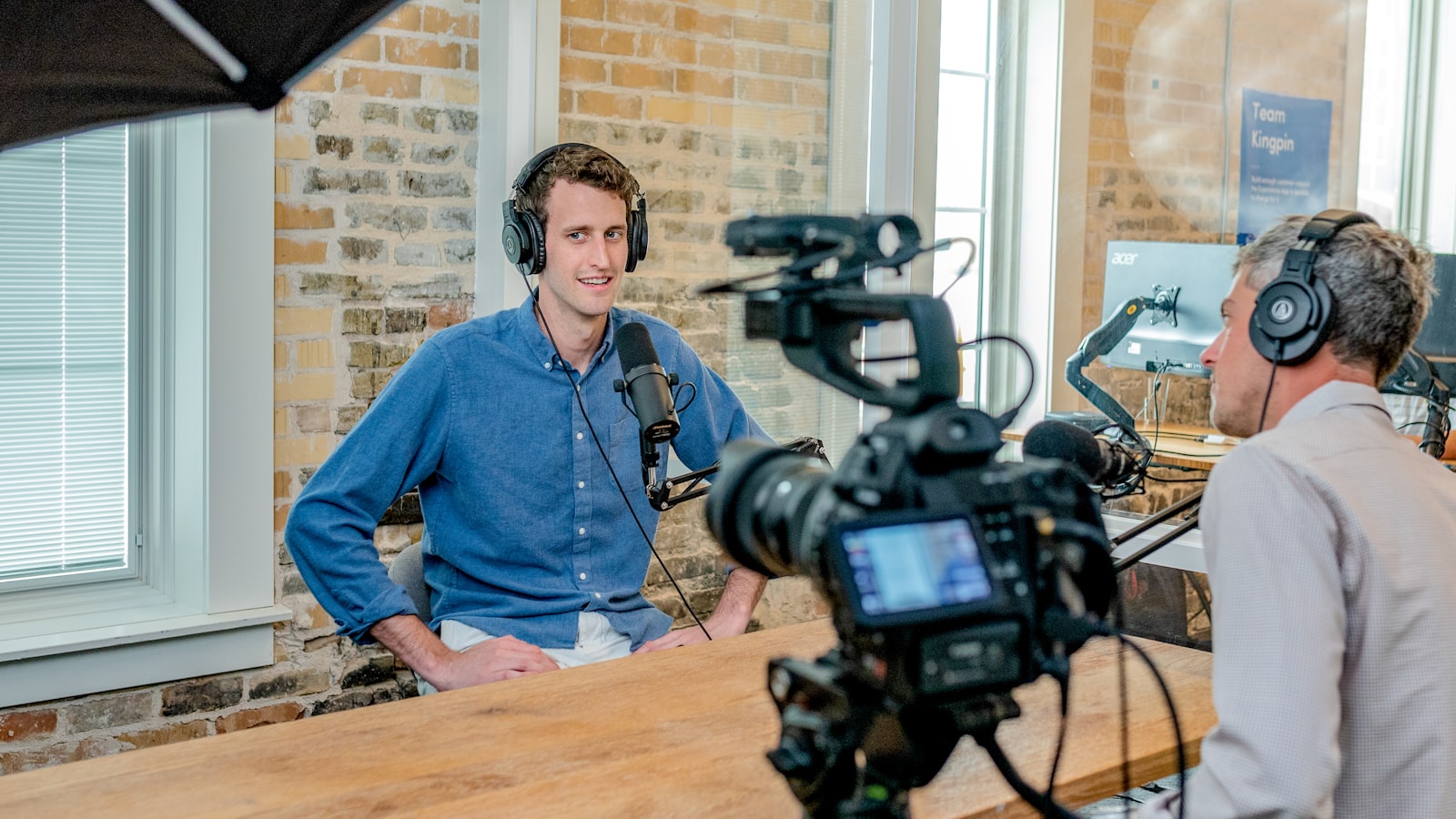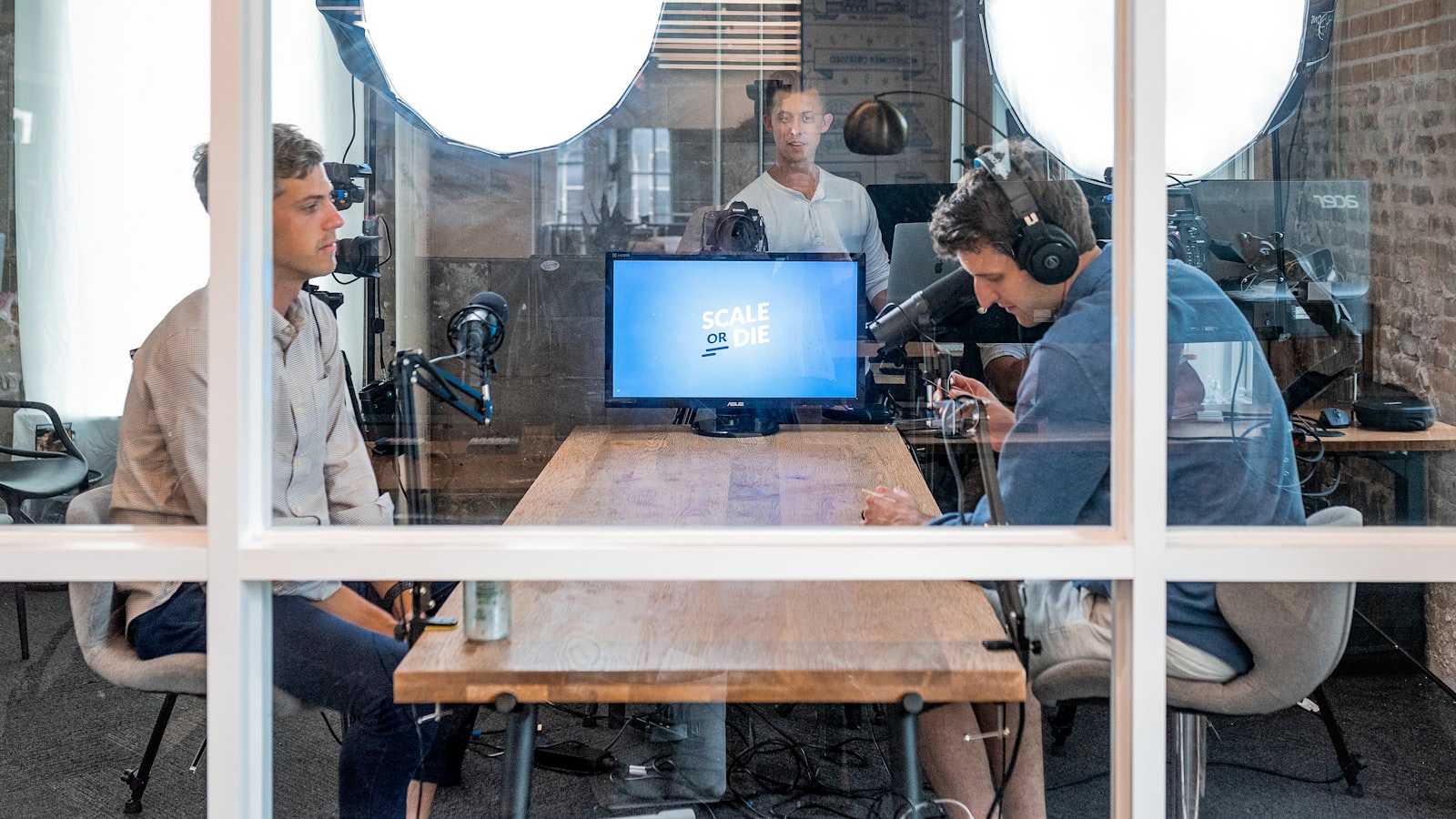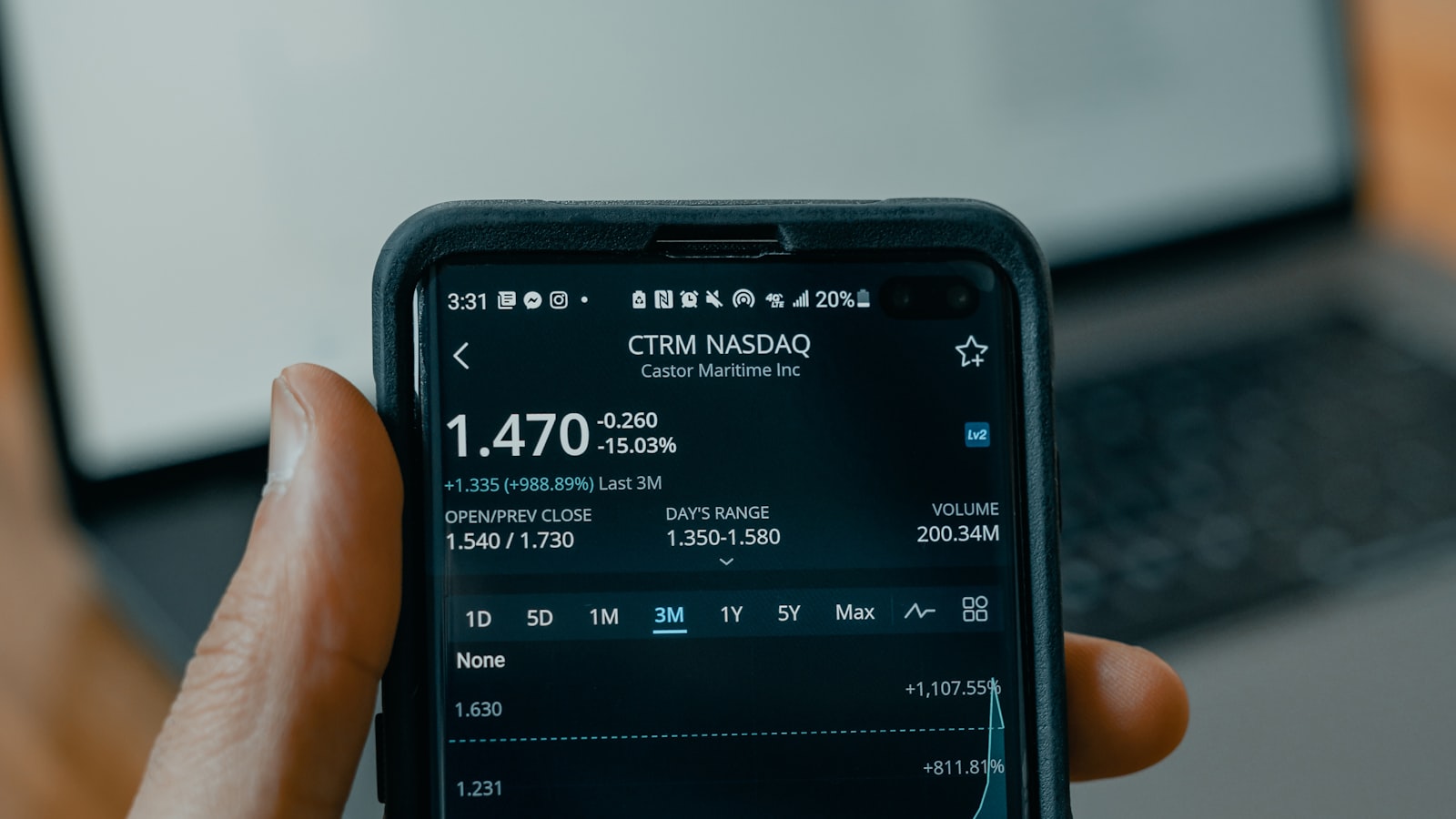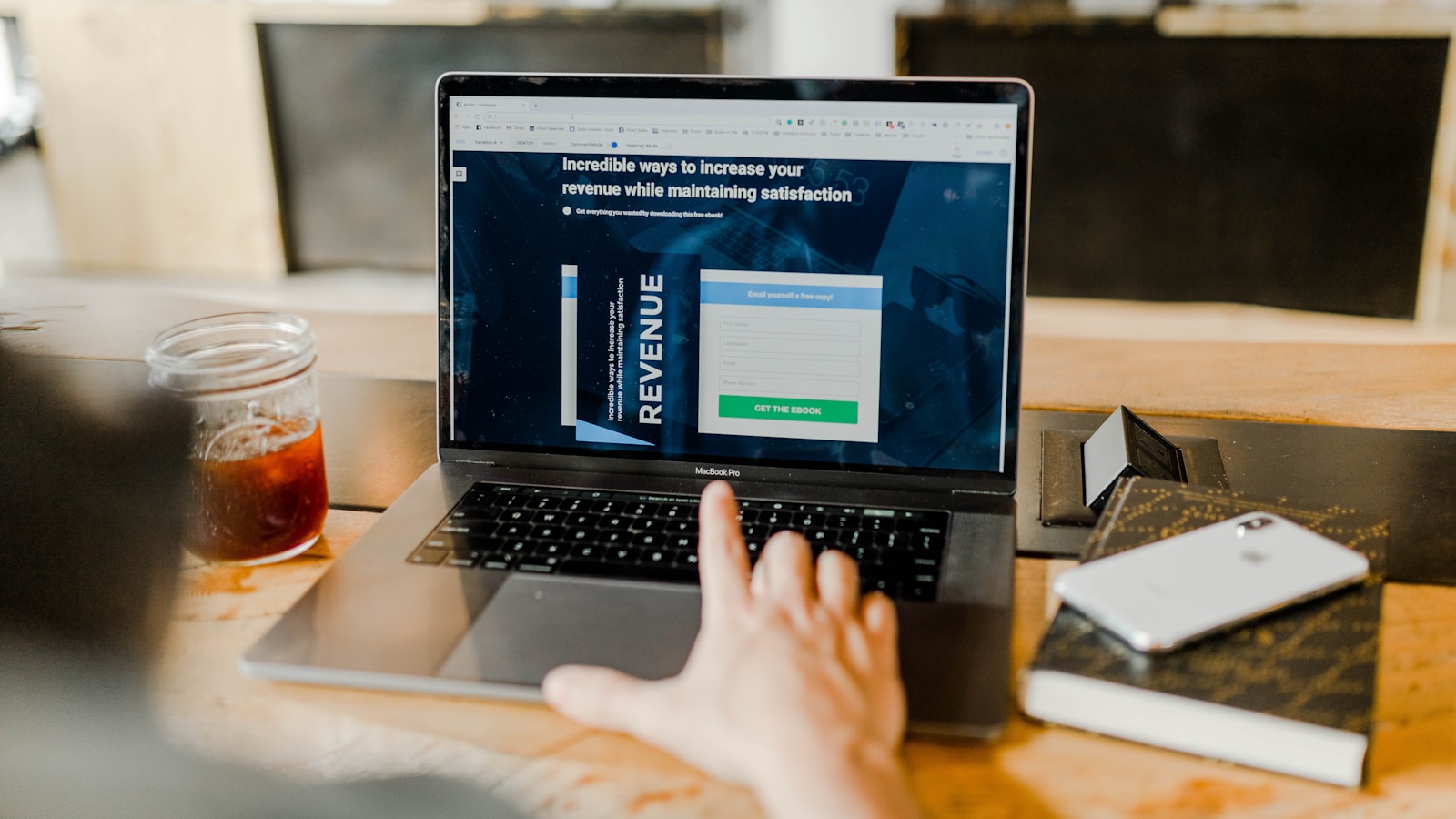Hosting SEO Workshops for SaaS Companies
Hosting SEO Workshops for SaaS Companies
Hosting SEO Workshops for SaaS Companies
Learn how our SEO workshops tailored for SaaS companies can boost your online presence. Join our SaaS SEO training to enhance your digital strategy.
Learn how our SEO workshops tailored for SaaS companies can boost your online presence. Join our SaaS SEO training to enhance your digital strategy.



Introduction to SEO Workshops for SaaS Companies
Are you a SaaS company looking to enhance your digital presence and drive sustainable growth? Hosting SEO workshops tailored specifically for SaaS companies might be the game-changer you've been searching for. In this article, we'll explore how to organize and conduct effective SEO workshops that can transform your team's understanding and implementation of programmatic SEO.
What is an SEO Workshop?
An SEO workshop is an interactive training session designed to educate participants on various aspects of search engine optimization. These sessions cover fundamental SEO principles, advanced strategies, and practical applications tailored to your business needs. For SaaS companies, these workshops can provide invaluable insights into optimizing your website, content, and overall online presence to attract and retain customers.
Why SEO is Crucial for SaaS Companies
For SaaS companies, SEO is not just a buzzword; it's a critical component of a successful digital marketing strategy. Here's why:
Increased Visibility: SEO helps your SaaS product rank higher on search engines, making it easier for potential customers to find you.
Cost-Effective Marketing: Compared to paid advertising, SEO offers a more sustainable and cost-effective way to drive organic traffic.
Targeted Traffic: By optimizing for the right keywords, you attract visitors who are actively searching for solutions that your SaaS product provides.
Long-Term Results: Unlike short-term marketing tactics, a well-executed SEO strategy can deliver lasting results and continuous growth.
In the following sections, we'll dive into the specifics of organizing and conducting SEO workshops that are tailored to the unique needs of SaaS companies. From selecting the right topics to engaging your audience, we'll provide actionable tips and best practices to help you get started.
Planning Your SEO Workshop
Identifying Your Target Audience
Understanding who will benefit most from your SEO workshop is the first step to success. For SaaS companies, this typically includes:
Marketing Teams: Professionals looking to enhance their SEO strategies.
Product Managers: Individuals aiming to integrate SEO into product development.
Content Creators: Writers and designers who need to align their work with SEO best practices.
By pinpointing your audience, you can tailor your content to address their specific needs and challenges. For more insights on targeting the right audience, check out resources like SaaStr and SaaS Industry.
Setting Clear Objectives
Defining what you want to achieve with your SEO workshop is crucial. Clear objectives help in creating focused content and measuring success. Consider goals such as:
Improving SEO Knowledge: Educate participants on the latest SEO techniques and strategies.
Enhancing Practical Skills: Provide hands-on experience with SEO tools like SEMrush or Ahrefs.
Driving Business Results: Focus on how SEO can increase organic traffic and lead generation for SaaS companies.
Having clear objectives ensures that your workshop delivers value and meets the expectations of your attendees.
Choosing the Right Format
The format of your SEO workshop can significantly impact its effectiveness. Here are some popular formats to consider:
In-Person Workshops: Ideal for interactive sessions and networking opportunities. Platforms like Eventbrite can help you organize these events.
Webinars: Perfect for reaching a broader audience without geographical limitations. Consider using LinkedIn Events for professional networking.
Online Courses: Great for self-paced learning. Platforms like Udemy and Coursera offer flexible options.
Choosing the right format depends on your audience's preferences and the depth of content you plan to cover. For more tips on selecting the best format, explore articles on Search Engine Journal.

4 Stages of SEO Workshop Marketing

1. Awareness
The first stage in marketing your SEO workshop is creating awareness. This involves making your target audience know that your workshop exists and why it’s valuable. Utilize various channels to spread the word:
Social Media: Share posts, stories, and updates on platforms like LinkedIn, Twitter, and Facebook. Use hashtags and engage with relevant communities.
Email Marketing: Send out newsletters and promotional emails to your existing contacts. Highlight the benefits and unique aspects of your workshop.
Content Marketing: Publish blog posts, articles, and guest posts on popular SEO blogs and websites like Moz Blog and Search Engine Journal.
Event Platforms: List your workshop on platforms like Eventbrite and Meetup to reach a broader audience.
2. Consideration
Once your audience is aware of your workshop, the next step is to nurture their interest. Provide detailed information that helps them understand the value they will gain:
Webinars and Previews: Host free webinars or short preview sessions to give potential attendees a taste of what to expect.
Testimonials and Case Studies: Share success stories from previous workshops. Highlight how past participants have benefited.
Detailed Descriptions: Create comprehensive landing pages with detailed agendas, speaker bios, and FAQs. Ensure these pages are optimized for search engines.
Social Proof: Encourage past attendees to share their experiences on social media and review platforms.
3. Decision
At this stage, your audience is ready to make a decision. Make it easy for them to commit to your workshop:
Clear Call-to-Actions (CTAs): Use compelling CTAs on your landing pages and emails. Examples include “Register Now” or “Secure Your Spot.”
Limited-Time Offers: Offer early bird discounts or special promotions to create a sense of urgency.
Easy Registration Process: Simplify the registration process. Use user-friendly forms and multiple payment options.
Follow-Up Emails: Send reminder emails to those who have shown interest but haven’t registered yet. Highlight the benefits and any upcoming deadlines.
4. Loyalty
The final stage focuses on building loyalty among your attendees. This ensures they return for future workshops and recommend them to others:
Post-Workshop Engagement: Follow up with attendees after the workshop. Share additional resources, recordings, and slides.
Feedback and Surveys: Collect feedback through surveys to understand what went well and what can be improved.
Exclusive Offers: Provide exclusive discounts or early access to future workshops for past attendees.
Community Building: Create a community around your workshops. Use platforms like LinkedIn Groups or Slack channels to keep the conversation going.
Key Elements of a High-Converting SEO Workshop
Workshop Goals
Setting clear and actionable goals is the foundation of a successful SEO workshop. Your objectives should align with the needs of your audience and the overall mission of your SaaS company. Common goals include:
Educating Participants: Provide valuable insights into SEO strategies and best practices.
Generating Leads: Attract potential clients who are interested in your SEO services.
Enhancing Brand Awareness: Position your company as an authority in the SEO space.
Driving Engagement: Foster interaction and engagement through Q&A sessions and interactive activities.
Presentation Structure
A well-structured presentation is crucial for maintaining the attention and interest of your audience. Here are key components to include:
Introduction: Start with a brief overview of what the workshop will cover and why it matters.
Main Content: Break down the core topics into digestible sections, using real-world examples and case studies to illustrate your points.
Interactive Elements: Incorporate activities such as live demos, group discussions, and hands-on exercises to keep participants engaged.
Conclusion: Summarize the key takeaways and provide actionable steps for participants to implement what they’ve learned.
Time and Date
Choosing the right time and date for your SEO workshop can significantly impact attendance and engagement. Consider the following tips:
Audience Availability: Schedule your workshop at a time when your target audience is most likely to be available. For instance, mid-week afternoons often work well for professionals.
Time Zones: If your audience is global, select a time that accommodates as many time zones as possible.
Duration: Keep the workshop duration manageable, typically between 60 to 90 minutes, to maintain attention and engagement.
Email Sequences
Effective email sequences are essential for promoting your workshop and ensuring high attendance rates. Here’s a basic sequence you can follow:
Announcement Email: Introduce the workshop, highlighting the benefits and what participants will learn. Include a clear call-to-action to register.
Reminder Emails: Send a series of reminders leading up to the event, emphasizing the value and including any updates or additional information.
Follow-Up Email: After the workshop, send a thank-you email with a summary of key points, additional resources, and a call-to-action for further engagement.

For more insights on SEO strategies and best practices, check out resources from Moz Blog and Search Engine Journal. Additionally, platforms like Eventbrite and Meetup are great for organizing and promoting your SEO workshops.
Running the SEO Workshop: Before, During, and After
Before the Workshop
Preparation is key to a successful SEO workshop. Here are some steps to ensure everything runs smoothly:
Define Your Goals: Clearly outline what you want to achieve with the workshop. Are you aiming to educate, generate leads, or both?
Promote the Event: Use platforms like Eventbrite and LinkedIn Events to reach your target audience.
Prepare Your Materials: Create engaging presentations, handouts, and any other materials you will need. Tools like Canva can help you design visually appealing content.
Set Up the Venue: Whether it’s a physical location or a virtual platform, ensure everything is ready. Test your equipment and internet connection if it’s an online event.
During the Workshop
Engagement and interaction are crucial during the workshop. Here’s how to keep your audience captivated:
Start with an Icebreaker: Begin with a quick activity or question to warm up the audience.
Follow a Structured Agenda: Stick to your planned schedule to cover all topics efficiently. Refer to resources like the Moz Blog for up-to-date SEO strategies.
Encourage Participation: Use Q&A sessions, polls, and group activities to keep attendees engaged.
Provide Real-World Examples: Share case studies and examples relevant to SaaS companies to make the content relatable. The SaaS Industry website can be a good source for such examples.
After the Workshop
Follow-up is essential to reinforce learning and maintain engagement. Here’s what to do post-workshop:
Send Follow-Up Emails: Thank attendees for participating and provide a summary of key points. Include links to additional resources such as the SEMrush blog for further reading.
Gather Feedback: Use surveys to collect feedback on the workshop. This will help you improve future sessions.
Share Workshop Materials: Provide access to the presentation slides, recordings, and any other materials used during the workshop.
Maintain Engagement: Keep the conversation going through social media and email newsletters. Invite attendees to join relevant forums like GrowthHackers for ongoing discussions.

Benefits of Hosting SEO Workshops for SaaS Companies

Generating Leads
Hosting SEO workshops can be a powerful lead generation tool for SaaS companies. By offering valuable insights and actionable strategies, you attract potential customers who are genuinely interested in improving their SEO. These attendees are more likely to convert into leads because they have already engaged with your brand and seen the value you provide.
For instance, companies like SEMrush and HubSpot frequently host workshops and webinars that not only educate but also capture leads through sign-ups and follow-up communications.
Scaling Demos
SEO workshops offer an excellent platform to scale your product demos. By integrating live demonstrations of your SaaS tools into the workshop, you can showcase their capabilities to a larger audience at once. This approach is more efficient than conducting individual demos and allows you to address common questions in real-time.
Platforms like Eventbrite and Meetup are great for organizing such events, ensuring you reach a broad audience.
Streamlining Onboarding
Effective onboarding is crucial for customer retention, and SEO workshops can play a significant role in this process. By educating new users on how to use your software effectively, you reduce the learning curve and help them achieve quicker results. This not only enhances user satisfaction but also decreases churn rates.
For example, Yoast SEO Academy offers comprehensive training sessions that help users get the most out of their SEO tools, ensuring a smoother onboarding experience.
Customer Education
Continuous education is key to maintaining a loyal customer base. Hosting SEO workshops allows you to keep your customers updated on the latest SEO trends and best practices. This ongoing education helps them stay competitive and reinforces the value of your SaaS product.
Websites like Moz Blog and Search Engine Journal are excellent resources for staying informed about the latest in SEO, which you can then share with your workshop attendees.
By leveraging these benefits, SaaS companies can not only attract and retain customers but also position themselves as thought leaders in the industry. For more insights on how to effectively host SEO workshops, check out resources on SaaStr and SaaS Industry.
Conclusion
Recap of Key Points
Hosting SEO workshops for SaaS companies can significantly impact your business by driving organic traffic, converting more leads, and reducing reliance on paid ads. Throughout this guide, we've covered essential aspects of planning and executing effective SEO workshops:
Understanding SEO Workshops: Defined what an SEO workshop entails and why it's crucial for SaaS companies.
Planning: Discussed identifying your target audience, setting clear objectives, and choosing the right format.
Marketing Stages: Explored the four stages of SEO workshop marketing: Awareness, Consideration, Decision, and Loyalty.
Key Elements: Highlighted the importance of workshop goals, presentation structure, timing, and email sequences.
Execution: Provided tips for managing the workshop before, during, and after the event.
Benefits: Emphasized the advantages of hosting SEO workshops, including generating leads, scaling demos, streamlining onboarding, and enhancing customer education.
Next Steps
Now that you have a comprehensive understanding of how to host successful SEO workshops for SaaS companies, it's time to take action. Here are your next steps:
Research and Plan: Start by researching more about SEO best practices. Websites like Moz Blog and Search Engine Journal are excellent resources.
Engage with the Community: Join platforms like Eventbrite and Meetup to find and participate in SEO workshops and webinars.
Utilize SEO Tools: Leverage tools and software from companies like SEMrush and HubSpot to enhance your SEO strategies.
Continue Learning: Enroll in courses on platforms like Udemy and Coursera to deepen your knowledge.
Connect with Peers: Engage in forums and online communities such as Reddit's SEO community and GrowthHackers to share insights and ask questions.
By following these steps, you'll be well on your way to hosting impactful SEO workshops that can drive meaningful results for your SaaS company. For more insights and support, visit TheRankRebel.com.

Introduction to SEO Workshops for SaaS Companies
Are you a SaaS company looking to enhance your digital presence and drive sustainable growth? Hosting SEO workshops tailored specifically for SaaS companies might be the game-changer you've been searching for. In this article, we'll explore how to organize and conduct effective SEO workshops that can transform your team's understanding and implementation of programmatic SEO.
What is an SEO Workshop?
An SEO workshop is an interactive training session designed to educate participants on various aspects of search engine optimization. These sessions cover fundamental SEO principles, advanced strategies, and practical applications tailored to your business needs. For SaaS companies, these workshops can provide invaluable insights into optimizing your website, content, and overall online presence to attract and retain customers.
Why SEO is Crucial for SaaS Companies
For SaaS companies, SEO is not just a buzzword; it's a critical component of a successful digital marketing strategy. Here's why:
Increased Visibility: SEO helps your SaaS product rank higher on search engines, making it easier for potential customers to find you.
Cost-Effective Marketing: Compared to paid advertising, SEO offers a more sustainable and cost-effective way to drive organic traffic.
Targeted Traffic: By optimizing for the right keywords, you attract visitors who are actively searching for solutions that your SaaS product provides.
Long-Term Results: Unlike short-term marketing tactics, a well-executed SEO strategy can deliver lasting results and continuous growth.
In the following sections, we'll dive into the specifics of organizing and conducting SEO workshops that are tailored to the unique needs of SaaS companies. From selecting the right topics to engaging your audience, we'll provide actionable tips and best practices to help you get started.
Planning Your SEO Workshop
Identifying Your Target Audience
Understanding who will benefit most from your SEO workshop is the first step to success. For SaaS companies, this typically includes:
Marketing Teams: Professionals looking to enhance their SEO strategies.
Product Managers: Individuals aiming to integrate SEO into product development.
Content Creators: Writers and designers who need to align their work with SEO best practices.
By pinpointing your audience, you can tailor your content to address their specific needs and challenges. For more insights on targeting the right audience, check out resources like SaaStr and SaaS Industry.
Setting Clear Objectives
Defining what you want to achieve with your SEO workshop is crucial. Clear objectives help in creating focused content and measuring success. Consider goals such as:
Improving SEO Knowledge: Educate participants on the latest SEO techniques and strategies.
Enhancing Practical Skills: Provide hands-on experience with SEO tools like SEMrush or Ahrefs.
Driving Business Results: Focus on how SEO can increase organic traffic and lead generation for SaaS companies.
Having clear objectives ensures that your workshop delivers value and meets the expectations of your attendees.
Choosing the Right Format
The format of your SEO workshop can significantly impact its effectiveness. Here are some popular formats to consider:
In-Person Workshops: Ideal for interactive sessions and networking opportunities. Platforms like Eventbrite can help you organize these events.
Webinars: Perfect for reaching a broader audience without geographical limitations. Consider using LinkedIn Events for professional networking.
Online Courses: Great for self-paced learning. Platforms like Udemy and Coursera offer flexible options.
Choosing the right format depends on your audience's preferences and the depth of content you plan to cover. For more tips on selecting the best format, explore articles on Search Engine Journal.

4 Stages of SEO Workshop Marketing

1. Awareness
The first stage in marketing your SEO workshop is creating awareness. This involves making your target audience know that your workshop exists and why it’s valuable. Utilize various channels to spread the word:
Social Media: Share posts, stories, and updates on platforms like LinkedIn, Twitter, and Facebook. Use hashtags and engage with relevant communities.
Email Marketing: Send out newsletters and promotional emails to your existing contacts. Highlight the benefits and unique aspects of your workshop.
Content Marketing: Publish blog posts, articles, and guest posts on popular SEO blogs and websites like Moz Blog and Search Engine Journal.
Event Platforms: List your workshop on platforms like Eventbrite and Meetup to reach a broader audience.
2. Consideration
Once your audience is aware of your workshop, the next step is to nurture their interest. Provide detailed information that helps them understand the value they will gain:
Webinars and Previews: Host free webinars or short preview sessions to give potential attendees a taste of what to expect.
Testimonials and Case Studies: Share success stories from previous workshops. Highlight how past participants have benefited.
Detailed Descriptions: Create comprehensive landing pages with detailed agendas, speaker bios, and FAQs. Ensure these pages are optimized for search engines.
Social Proof: Encourage past attendees to share their experiences on social media and review platforms.
3. Decision
At this stage, your audience is ready to make a decision. Make it easy for them to commit to your workshop:
Clear Call-to-Actions (CTAs): Use compelling CTAs on your landing pages and emails. Examples include “Register Now” or “Secure Your Spot.”
Limited-Time Offers: Offer early bird discounts or special promotions to create a sense of urgency.
Easy Registration Process: Simplify the registration process. Use user-friendly forms and multiple payment options.
Follow-Up Emails: Send reminder emails to those who have shown interest but haven’t registered yet. Highlight the benefits and any upcoming deadlines.
4. Loyalty
The final stage focuses on building loyalty among your attendees. This ensures they return for future workshops and recommend them to others:
Post-Workshop Engagement: Follow up with attendees after the workshop. Share additional resources, recordings, and slides.
Feedback and Surveys: Collect feedback through surveys to understand what went well and what can be improved.
Exclusive Offers: Provide exclusive discounts or early access to future workshops for past attendees.
Community Building: Create a community around your workshops. Use platforms like LinkedIn Groups or Slack channels to keep the conversation going.
Key Elements of a High-Converting SEO Workshop
Workshop Goals
Setting clear and actionable goals is the foundation of a successful SEO workshop. Your objectives should align with the needs of your audience and the overall mission of your SaaS company. Common goals include:
Educating Participants: Provide valuable insights into SEO strategies and best practices.
Generating Leads: Attract potential clients who are interested in your SEO services.
Enhancing Brand Awareness: Position your company as an authority in the SEO space.
Driving Engagement: Foster interaction and engagement through Q&A sessions and interactive activities.
Presentation Structure
A well-structured presentation is crucial for maintaining the attention and interest of your audience. Here are key components to include:
Introduction: Start with a brief overview of what the workshop will cover and why it matters.
Main Content: Break down the core topics into digestible sections, using real-world examples and case studies to illustrate your points.
Interactive Elements: Incorporate activities such as live demos, group discussions, and hands-on exercises to keep participants engaged.
Conclusion: Summarize the key takeaways and provide actionable steps for participants to implement what they’ve learned.
Time and Date
Choosing the right time and date for your SEO workshop can significantly impact attendance and engagement. Consider the following tips:
Audience Availability: Schedule your workshop at a time when your target audience is most likely to be available. For instance, mid-week afternoons often work well for professionals.
Time Zones: If your audience is global, select a time that accommodates as many time zones as possible.
Duration: Keep the workshop duration manageable, typically between 60 to 90 minutes, to maintain attention and engagement.
Email Sequences
Effective email sequences are essential for promoting your workshop and ensuring high attendance rates. Here’s a basic sequence you can follow:
Announcement Email: Introduce the workshop, highlighting the benefits and what participants will learn. Include a clear call-to-action to register.
Reminder Emails: Send a series of reminders leading up to the event, emphasizing the value and including any updates or additional information.
Follow-Up Email: After the workshop, send a thank-you email with a summary of key points, additional resources, and a call-to-action for further engagement.

For more insights on SEO strategies and best practices, check out resources from Moz Blog and Search Engine Journal. Additionally, platforms like Eventbrite and Meetup are great for organizing and promoting your SEO workshops.
Running the SEO Workshop: Before, During, and After
Before the Workshop
Preparation is key to a successful SEO workshop. Here are some steps to ensure everything runs smoothly:
Define Your Goals: Clearly outline what you want to achieve with the workshop. Are you aiming to educate, generate leads, or both?
Promote the Event: Use platforms like Eventbrite and LinkedIn Events to reach your target audience.
Prepare Your Materials: Create engaging presentations, handouts, and any other materials you will need. Tools like Canva can help you design visually appealing content.
Set Up the Venue: Whether it’s a physical location or a virtual platform, ensure everything is ready. Test your equipment and internet connection if it’s an online event.
During the Workshop
Engagement and interaction are crucial during the workshop. Here’s how to keep your audience captivated:
Start with an Icebreaker: Begin with a quick activity or question to warm up the audience.
Follow a Structured Agenda: Stick to your planned schedule to cover all topics efficiently. Refer to resources like the Moz Blog for up-to-date SEO strategies.
Encourage Participation: Use Q&A sessions, polls, and group activities to keep attendees engaged.
Provide Real-World Examples: Share case studies and examples relevant to SaaS companies to make the content relatable. The SaaS Industry website can be a good source for such examples.
After the Workshop
Follow-up is essential to reinforce learning and maintain engagement. Here’s what to do post-workshop:
Send Follow-Up Emails: Thank attendees for participating and provide a summary of key points. Include links to additional resources such as the SEMrush blog for further reading.
Gather Feedback: Use surveys to collect feedback on the workshop. This will help you improve future sessions.
Share Workshop Materials: Provide access to the presentation slides, recordings, and any other materials used during the workshop.
Maintain Engagement: Keep the conversation going through social media and email newsletters. Invite attendees to join relevant forums like GrowthHackers for ongoing discussions.

Benefits of Hosting SEO Workshops for SaaS Companies

Generating Leads
Hosting SEO workshops can be a powerful lead generation tool for SaaS companies. By offering valuable insights and actionable strategies, you attract potential customers who are genuinely interested in improving their SEO. These attendees are more likely to convert into leads because they have already engaged with your brand and seen the value you provide.
For instance, companies like SEMrush and HubSpot frequently host workshops and webinars that not only educate but also capture leads through sign-ups and follow-up communications.
Scaling Demos
SEO workshops offer an excellent platform to scale your product demos. By integrating live demonstrations of your SaaS tools into the workshop, you can showcase their capabilities to a larger audience at once. This approach is more efficient than conducting individual demos and allows you to address common questions in real-time.
Platforms like Eventbrite and Meetup are great for organizing such events, ensuring you reach a broad audience.
Streamlining Onboarding
Effective onboarding is crucial for customer retention, and SEO workshops can play a significant role in this process. By educating new users on how to use your software effectively, you reduce the learning curve and help them achieve quicker results. This not only enhances user satisfaction but also decreases churn rates.
For example, Yoast SEO Academy offers comprehensive training sessions that help users get the most out of their SEO tools, ensuring a smoother onboarding experience.
Customer Education
Continuous education is key to maintaining a loyal customer base. Hosting SEO workshops allows you to keep your customers updated on the latest SEO trends and best practices. This ongoing education helps them stay competitive and reinforces the value of your SaaS product.
Websites like Moz Blog and Search Engine Journal are excellent resources for staying informed about the latest in SEO, which you can then share with your workshop attendees.
By leveraging these benefits, SaaS companies can not only attract and retain customers but also position themselves as thought leaders in the industry. For more insights on how to effectively host SEO workshops, check out resources on SaaStr and SaaS Industry.
Conclusion
Recap of Key Points
Hosting SEO workshops for SaaS companies can significantly impact your business by driving organic traffic, converting more leads, and reducing reliance on paid ads. Throughout this guide, we've covered essential aspects of planning and executing effective SEO workshops:
Understanding SEO Workshops: Defined what an SEO workshop entails and why it's crucial for SaaS companies.
Planning: Discussed identifying your target audience, setting clear objectives, and choosing the right format.
Marketing Stages: Explored the four stages of SEO workshop marketing: Awareness, Consideration, Decision, and Loyalty.
Key Elements: Highlighted the importance of workshop goals, presentation structure, timing, and email sequences.
Execution: Provided tips for managing the workshop before, during, and after the event.
Benefits: Emphasized the advantages of hosting SEO workshops, including generating leads, scaling demos, streamlining onboarding, and enhancing customer education.
Next Steps
Now that you have a comprehensive understanding of how to host successful SEO workshops for SaaS companies, it's time to take action. Here are your next steps:
Research and Plan: Start by researching more about SEO best practices. Websites like Moz Blog and Search Engine Journal are excellent resources.
Engage with the Community: Join platforms like Eventbrite and Meetup to find and participate in SEO workshops and webinars.
Utilize SEO Tools: Leverage tools and software from companies like SEMrush and HubSpot to enhance your SEO strategies.
Continue Learning: Enroll in courses on platforms like Udemy and Coursera to deepen your knowledge.
Connect with Peers: Engage in forums and online communities such as Reddit's SEO community and GrowthHackers to share insights and ask questions.
By following these steps, you'll be well on your way to hosting impactful SEO workshops that can drive meaningful results for your SaaS company. For more insights and support, visit TheRankRebel.com.

Introduction to SEO Workshops for SaaS Companies
Are you a SaaS company looking to enhance your digital presence and drive sustainable growth? Hosting SEO workshops tailored specifically for SaaS companies might be the game-changer you've been searching for. In this article, we'll explore how to organize and conduct effective SEO workshops that can transform your team's understanding and implementation of programmatic SEO.
What is an SEO Workshop?
An SEO workshop is an interactive training session designed to educate participants on various aspects of search engine optimization. These sessions cover fundamental SEO principles, advanced strategies, and practical applications tailored to your business needs. For SaaS companies, these workshops can provide invaluable insights into optimizing your website, content, and overall online presence to attract and retain customers.
Why SEO is Crucial for SaaS Companies
For SaaS companies, SEO is not just a buzzword; it's a critical component of a successful digital marketing strategy. Here's why:
Increased Visibility: SEO helps your SaaS product rank higher on search engines, making it easier for potential customers to find you.
Cost-Effective Marketing: Compared to paid advertising, SEO offers a more sustainable and cost-effective way to drive organic traffic.
Targeted Traffic: By optimizing for the right keywords, you attract visitors who are actively searching for solutions that your SaaS product provides.
Long-Term Results: Unlike short-term marketing tactics, a well-executed SEO strategy can deliver lasting results and continuous growth.
In the following sections, we'll dive into the specifics of organizing and conducting SEO workshops that are tailored to the unique needs of SaaS companies. From selecting the right topics to engaging your audience, we'll provide actionable tips and best practices to help you get started.
Planning Your SEO Workshop
Identifying Your Target Audience
Understanding who will benefit most from your SEO workshop is the first step to success. For SaaS companies, this typically includes:
Marketing Teams: Professionals looking to enhance their SEO strategies.
Product Managers: Individuals aiming to integrate SEO into product development.
Content Creators: Writers and designers who need to align their work with SEO best practices.
By pinpointing your audience, you can tailor your content to address their specific needs and challenges. For more insights on targeting the right audience, check out resources like SaaStr and SaaS Industry.
Setting Clear Objectives
Defining what you want to achieve with your SEO workshop is crucial. Clear objectives help in creating focused content and measuring success. Consider goals such as:
Improving SEO Knowledge: Educate participants on the latest SEO techniques and strategies.
Enhancing Practical Skills: Provide hands-on experience with SEO tools like SEMrush or Ahrefs.
Driving Business Results: Focus on how SEO can increase organic traffic and lead generation for SaaS companies.
Having clear objectives ensures that your workshop delivers value and meets the expectations of your attendees.
Choosing the Right Format
The format of your SEO workshop can significantly impact its effectiveness. Here are some popular formats to consider:
In-Person Workshops: Ideal for interactive sessions and networking opportunities. Platforms like Eventbrite can help you organize these events.
Webinars: Perfect for reaching a broader audience without geographical limitations. Consider using LinkedIn Events for professional networking.
Online Courses: Great for self-paced learning. Platforms like Udemy and Coursera offer flexible options.
Choosing the right format depends on your audience's preferences and the depth of content you plan to cover. For more tips on selecting the best format, explore articles on Search Engine Journal.

4 Stages of SEO Workshop Marketing

1. Awareness
The first stage in marketing your SEO workshop is creating awareness. This involves making your target audience know that your workshop exists and why it’s valuable. Utilize various channels to spread the word:
Social Media: Share posts, stories, and updates on platforms like LinkedIn, Twitter, and Facebook. Use hashtags and engage with relevant communities.
Email Marketing: Send out newsletters and promotional emails to your existing contacts. Highlight the benefits and unique aspects of your workshop.
Content Marketing: Publish blog posts, articles, and guest posts on popular SEO blogs and websites like Moz Blog and Search Engine Journal.
Event Platforms: List your workshop on platforms like Eventbrite and Meetup to reach a broader audience.
2. Consideration
Once your audience is aware of your workshop, the next step is to nurture their interest. Provide detailed information that helps them understand the value they will gain:
Webinars and Previews: Host free webinars or short preview sessions to give potential attendees a taste of what to expect.
Testimonials and Case Studies: Share success stories from previous workshops. Highlight how past participants have benefited.
Detailed Descriptions: Create comprehensive landing pages with detailed agendas, speaker bios, and FAQs. Ensure these pages are optimized for search engines.
Social Proof: Encourage past attendees to share their experiences on social media and review platforms.
3. Decision
At this stage, your audience is ready to make a decision. Make it easy for them to commit to your workshop:
Clear Call-to-Actions (CTAs): Use compelling CTAs on your landing pages and emails. Examples include “Register Now” or “Secure Your Spot.”
Limited-Time Offers: Offer early bird discounts or special promotions to create a sense of urgency.
Easy Registration Process: Simplify the registration process. Use user-friendly forms and multiple payment options.
Follow-Up Emails: Send reminder emails to those who have shown interest but haven’t registered yet. Highlight the benefits and any upcoming deadlines.
4. Loyalty
The final stage focuses on building loyalty among your attendees. This ensures they return for future workshops and recommend them to others:
Post-Workshop Engagement: Follow up with attendees after the workshop. Share additional resources, recordings, and slides.
Feedback and Surveys: Collect feedback through surveys to understand what went well and what can be improved.
Exclusive Offers: Provide exclusive discounts or early access to future workshops for past attendees.
Community Building: Create a community around your workshops. Use platforms like LinkedIn Groups or Slack channels to keep the conversation going.
Key Elements of a High-Converting SEO Workshop
Workshop Goals
Setting clear and actionable goals is the foundation of a successful SEO workshop. Your objectives should align with the needs of your audience and the overall mission of your SaaS company. Common goals include:
Educating Participants: Provide valuable insights into SEO strategies and best practices.
Generating Leads: Attract potential clients who are interested in your SEO services.
Enhancing Brand Awareness: Position your company as an authority in the SEO space.
Driving Engagement: Foster interaction and engagement through Q&A sessions and interactive activities.
Presentation Structure
A well-structured presentation is crucial for maintaining the attention and interest of your audience. Here are key components to include:
Introduction: Start with a brief overview of what the workshop will cover and why it matters.
Main Content: Break down the core topics into digestible sections, using real-world examples and case studies to illustrate your points.
Interactive Elements: Incorporate activities such as live demos, group discussions, and hands-on exercises to keep participants engaged.
Conclusion: Summarize the key takeaways and provide actionable steps for participants to implement what they’ve learned.
Time and Date
Choosing the right time and date for your SEO workshop can significantly impact attendance and engagement. Consider the following tips:
Audience Availability: Schedule your workshop at a time when your target audience is most likely to be available. For instance, mid-week afternoons often work well for professionals.
Time Zones: If your audience is global, select a time that accommodates as many time zones as possible.
Duration: Keep the workshop duration manageable, typically between 60 to 90 minutes, to maintain attention and engagement.
Email Sequences
Effective email sequences are essential for promoting your workshop and ensuring high attendance rates. Here’s a basic sequence you can follow:
Announcement Email: Introduce the workshop, highlighting the benefits and what participants will learn. Include a clear call-to-action to register.
Reminder Emails: Send a series of reminders leading up to the event, emphasizing the value and including any updates or additional information.
Follow-Up Email: After the workshop, send a thank-you email with a summary of key points, additional resources, and a call-to-action for further engagement.

For more insights on SEO strategies and best practices, check out resources from Moz Blog and Search Engine Journal. Additionally, platforms like Eventbrite and Meetup are great for organizing and promoting your SEO workshops.
Running the SEO Workshop: Before, During, and After
Before the Workshop
Preparation is key to a successful SEO workshop. Here are some steps to ensure everything runs smoothly:
Define Your Goals: Clearly outline what you want to achieve with the workshop. Are you aiming to educate, generate leads, or both?
Promote the Event: Use platforms like Eventbrite and LinkedIn Events to reach your target audience.
Prepare Your Materials: Create engaging presentations, handouts, and any other materials you will need. Tools like Canva can help you design visually appealing content.
Set Up the Venue: Whether it’s a physical location or a virtual platform, ensure everything is ready. Test your equipment and internet connection if it’s an online event.
During the Workshop
Engagement and interaction are crucial during the workshop. Here’s how to keep your audience captivated:
Start with an Icebreaker: Begin with a quick activity or question to warm up the audience.
Follow a Structured Agenda: Stick to your planned schedule to cover all topics efficiently. Refer to resources like the Moz Blog for up-to-date SEO strategies.
Encourage Participation: Use Q&A sessions, polls, and group activities to keep attendees engaged.
Provide Real-World Examples: Share case studies and examples relevant to SaaS companies to make the content relatable. The SaaS Industry website can be a good source for such examples.
After the Workshop
Follow-up is essential to reinforce learning and maintain engagement. Here’s what to do post-workshop:
Send Follow-Up Emails: Thank attendees for participating and provide a summary of key points. Include links to additional resources such as the SEMrush blog for further reading.
Gather Feedback: Use surveys to collect feedback on the workshop. This will help you improve future sessions.
Share Workshop Materials: Provide access to the presentation slides, recordings, and any other materials used during the workshop.
Maintain Engagement: Keep the conversation going through social media and email newsletters. Invite attendees to join relevant forums like GrowthHackers for ongoing discussions.

Benefits of Hosting SEO Workshops for SaaS Companies

Generating Leads
Hosting SEO workshops can be a powerful lead generation tool for SaaS companies. By offering valuable insights and actionable strategies, you attract potential customers who are genuinely interested in improving their SEO. These attendees are more likely to convert into leads because they have already engaged with your brand and seen the value you provide.
For instance, companies like SEMrush and HubSpot frequently host workshops and webinars that not only educate but also capture leads through sign-ups and follow-up communications.
Scaling Demos
SEO workshops offer an excellent platform to scale your product demos. By integrating live demonstrations of your SaaS tools into the workshop, you can showcase their capabilities to a larger audience at once. This approach is more efficient than conducting individual demos and allows you to address common questions in real-time.
Platforms like Eventbrite and Meetup are great for organizing such events, ensuring you reach a broad audience.
Streamlining Onboarding
Effective onboarding is crucial for customer retention, and SEO workshops can play a significant role in this process. By educating new users on how to use your software effectively, you reduce the learning curve and help them achieve quicker results. This not only enhances user satisfaction but also decreases churn rates.
For example, Yoast SEO Academy offers comprehensive training sessions that help users get the most out of their SEO tools, ensuring a smoother onboarding experience.
Customer Education
Continuous education is key to maintaining a loyal customer base. Hosting SEO workshops allows you to keep your customers updated on the latest SEO trends and best practices. This ongoing education helps them stay competitive and reinforces the value of your SaaS product.
Websites like Moz Blog and Search Engine Journal are excellent resources for staying informed about the latest in SEO, which you can then share with your workshop attendees.
By leveraging these benefits, SaaS companies can not only attract and retain customers but also position themselves as thought leaders in the industry. For more insights on how to effectively host SEO workshops, check out resources on SaaStr and SaaS Industry.
Conclusion
Recap of Key Points
Hosting SEO workshops for SaaS companies can significantly impact your business by driving organic traffic, converting more leads, and reducing reliance on paid ads. Throughout this guide, we've covered essential aspects of planning and executing effective SEO workshops:
Understanding SEO Workshops: Defined what an SEO workshop entails and why it's crucial for SaaS companies.
Planning: Discussed identifying your target audience, setting clear objectives, and choosing the right format.
Marketing Stages: Explored the four stages of SEO workshop marketing: Awareness, Consideration, Decision, and Loyalty.
Key Elements: Highlighted the importance of workshop goals, presentation structure, timing, and email sequences.
Execution: Provided tips for managing the workshop before, during, and after the event.
Benefits: Emphasized the advantages of hosting SEO workshops, including generating leads, scaling demos, streamlining onboarding, and enhancing customer education.
Next Steps
Now that you have a comprehensive understanding of how to host successful SEO workshops for SaaS companies, it's time to take action. Here are your next steps:
Research and Plan: Start by researching more about SEO best practices. Websites like Moz Blog and Search Engine Journal are excellent resources.
Engage with the Community: Join platforms like Eventbrite and Meetup to find and participate in SEO workshops and webinars.
Utilize SEO Tools: Leverage tools and software from companies like SEMrush and HubSpot to enhance your SEO strategies.
Continue Learning: Enroll in courses on platforms like Udemy and Coursera to deepen your knowledge.
Connect with Peers: Engage in forums and online communities such as Reddit's SEO community and GrowthHackers to share insights and ask questions.
By following these steps, you'll be well on your way to hosting impactful SEO workshops that can drive meaningful results for your SaaS company. For more insights and support, visit TheRankRebel.com.

Need help with SEO?
Need help with SEO?
Need help with SEO?
Join our 5-day free course on how to use AI to get more traffic to your website!
Explode your organic traffic and generate red-hot leads without spending a fortune on ads
Claim the top spot on search rankings for the most lucrative keywords in your industry
Cement your position as the undisputed authority in your niche, fostering unshakable trust and loyalty
Skyrocket your conversion rates and revenue with irresistible, customer-centric content
Conquer untapped markets and expand your reach by seizing hidden keyword opportunities
Liberate your time and resources from tedious content tasks, so you can focus on scaling your business
Gain laser-sharp insights into your ideal customers' minds, enabling you to create products and content they can't resist
Harness the power of data-driven decision-making to optimize your marketing for maximum impact
Achieve unstoppable, long-term organic growth without being held hostage by algorithm updates or ad costs
Stay light-years ahead of the competition by leveraging cutting-edge AI to adapt to any market shift or customer trend
Explode your organic traffic and generate red-hot leads without spending a fortune on ads
Claim the top spot on search rankings for the most lucrative keywords in your industry
Cement your position as the undisputed authority in your niche, fostering unshakable trust and loyalty
Skyrocket your conversion rates and revenue with irresistible, customer-centric content
Conquer untapped markets and expand your reach by seizing hidden keyword opportunities
Liberate your time and resources from tedious content tasks, so you can focus on scaling your business
Gain laser-sharp insights into your ideal customers' minds, enabling you to create products and content they can't resist
Harness the power of data-driven decision-making to optimize your marketing for maximum impact
Achieve unstoppable, long-term organic growth without being held hostage by algorithm updates or ad costs
Stay light-years ahead of the competition by leveraging cutting-edge AI to adapt to any market shift or customer trend
Explode your organic traffic and generate red-hot leads without spending a fortune on ads
Claim the top spot on search rankings for the most lucrative keywords in your industry
Cement your position as the undisputed authority in your niche, fostering unshakable trust and loyalty
Skyrocket your conversion rates and revenue with irresistible, customer-centric content
Conquer untapped markets and expand your reach by seizing hidden keyword opportunities
Liberate your time and resources from tedious content tasks, so you can focus on scaling your business
Gain laser-sharp insights into your ideal customers' minds, enabling you to create products and content they can't resist
Harness the power of data-driven decision-making to optimize your marketing for maximum impact
Achieve unstoppable, long-term organic growth without being held hostage by algorithm updates or ad costs
Stay light-years ahead of the competition by leveraging cutting-edge AI to adapt to any market shift or customer trend







